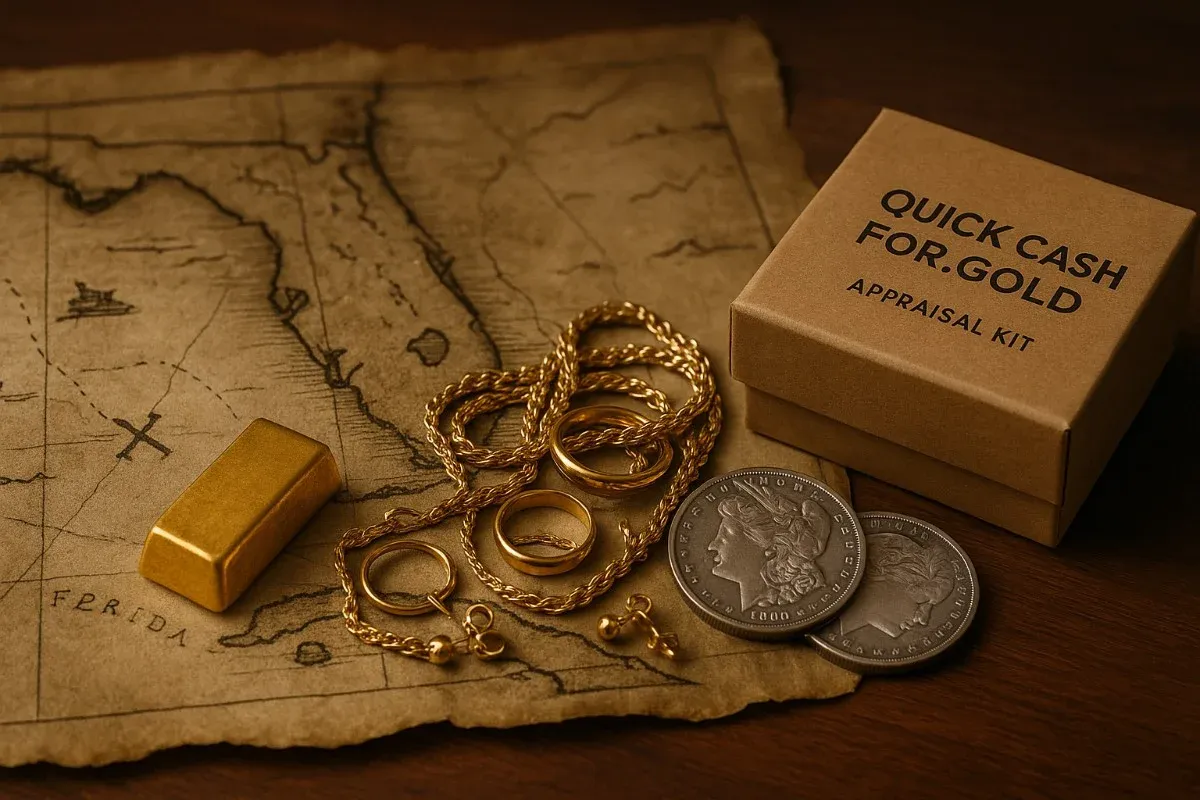1715 Plate Fleet - Gold, Glory, and a Storm That Changed Florida Forever
(Part One of the QuickCashFor.Gold Treasure Series)
The Treasure Fleet of 1715
In the summer of 1715, eleven Spanish ships - known as the Plate Fleet ("plata" meaning silver in Spanish) - set sail from Havana, Cuba. Their holds were overflowing with gold coins, silver bars, emeralds, pearls, and fine jewelry from Spain's colonies in the New World. These riches represented years of mining and trade, meant to fuel the Spanish crown's power in Europe.
The fleet was a mix of galleons and merchant vessels, each carrying soldiers, sailors, merchants, and passengers - likely over 2,000 people in total. The ships were heavily laden, sailing slower than usual, and vulnerable to the dangers of the Atlantic.
A Hurricane Strikes
On July 31, 1715, disaster struck. As the fleet moved north along Florida's east coast, a massive hurricane swept in from the Atlantic. Winds tore sails to shreds. Waves smashed wooden hulls. One by one, the ships were driven onto the reefs and sandy shallows between present-day Fort Pierce and Sebastian Inlet.
When the sun rose the next day, the shoreline was littered with wreckage - and the treasures of the Spanish empire lay scattered beneath the waves.
The Ais People
The local Ais tribe, who lived along Florida's Treasure Coast, witnessed the wrecks. To the Spanish survivors, the Ais were both a danger and a lifeline. While the Spanish crown quickly dispatched salvage crews to recover what they could, the Ais were skilled at retrieving gold and silver from the shallow reefs - often keeping some for themselves.
For months, Spanish salvage efforts continued, recovering tons of precious metal. But much remained lost, buried by sand and hidden in the seafloor. The area would become infamous for its sunken wealth - and the legend of the Plate Fleet was born.
Why This Story Still Matters
Today, the 1715 wreck sites still draw treasure hunters, historians, and divers hoping to find a glint of gold in the sand. And while most of us aren't diving for centuries-old Spanish coins, you might be surprised at the "treasures" hiding in your own home - old gold jewelry, broken chains, silver flatware, or even coins you no longer collect.
QuickCashFor.Gold makes it easy to turn those items into real money - without leaving your house. Our free, no-risk appraisal kit lets you safely send in your precious metals, get a fast offer, and have cash in your account in days.
If you've got gold or silver just sitting in a drawer, maybe it's time to bring your own treasure to the surface.
Next in this series: Part Two - Kip Wagner: The Man Who Brought the Plate Fleet Back Into the Spotlight
